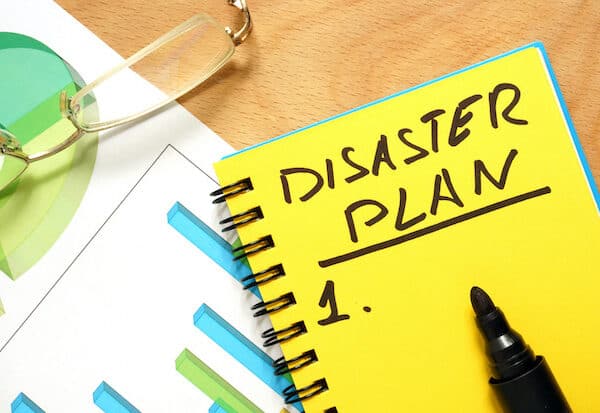A proactive disaster management plan can mitigate the effects on your business and help speed your return to normal operations.

By SCORE
Think about all the time and resources you have invested in your small business. Imagine that it’s all gone: furniture, equipment, inventory, records, everything. What would you do?
“There will be problems flying at you from all directions,” said Mark Debner, whose Cedar Rapids, Iowa-based business DPI Quality Custom Finishes was hit hard by flooding in 2008 and the Midwest derecho of 2020. “You will be making quick decisions while under great pressure. Do not beat yourself up if you make a few bad mistakes as you recover.”
While you can’t prevent natural disasters, a proactive disaster management plan can mitigate the effects on your business and help speed your return to normal operations. This National Safety Month, SCORE shared several tips for developing a strategy:
Develop An Operational Contingency Plan
Assess the feasibility of operating out of nearby rented office or warehouse space, or even your home. Perhaps a mutual agreement with a friendly competitor to share space and other facilities is worth considering. Determine what equipment and other resources will be needed to continue operations. Important documents, backup copies of computer records, and other vital information should be stored at a secure off-site location or in the cloud.
Jennifer Megliore felt the impact of Hurricane Matthew on her art retail business, ArtWare, on Hilton Head Island, S.C. in 2016. “My SCORE mentor encouraged me to have a hurricane plan, being feet away from the water,” said Megliore. “He helped me create a laminated checklist of items and equipment to remove if we had to evacuate.”
She also received advice to set aside contingency money that would help bridge a closure. “Insurance can help,” she said, “but it can take a long time to receive the money to keep going.”
Ensure The Safety Of Employees And Customers
Develop an evacuation plan that includes access to shelters, hospitals and other emergency services. Keep emergency telephone numbers clearly posted, and maintain up-to-date emergency contact and essential medical information for all employees.
Perform A Safety Inventor
Regularly clean and test smoke detectors, changing the batteries at least once each year. Make sure you have several well-stocked first-aid kits and that all fire extinguishers are fully charged. Keep a supply of all types of batteries used in your business, and consider purchasing a portable generator for emergency power, with fuel safely stored.
Review Your Business Insurance Coverage
Your coverage should be enough to get your business back in operation at the earliest possible date. It should cover the replacement cost of buildings, contents, and essential facilities. Special coverage may be needed to cover computer hardware, software, and stored data. A major consideration is business interruption and extra expense coverage for loss of income and other expenses incurred to quickly return to normal operations. A qualified, professional commercial insurance agent can prove to be a valuable resource in crafting a disaster management plan for businesses.



